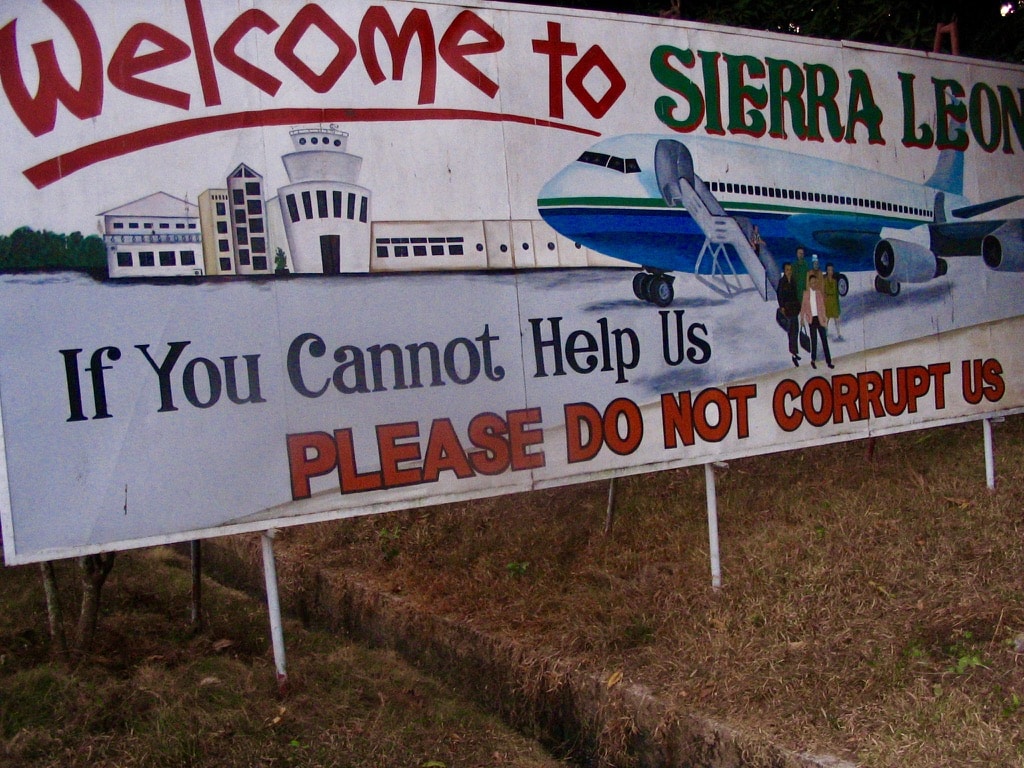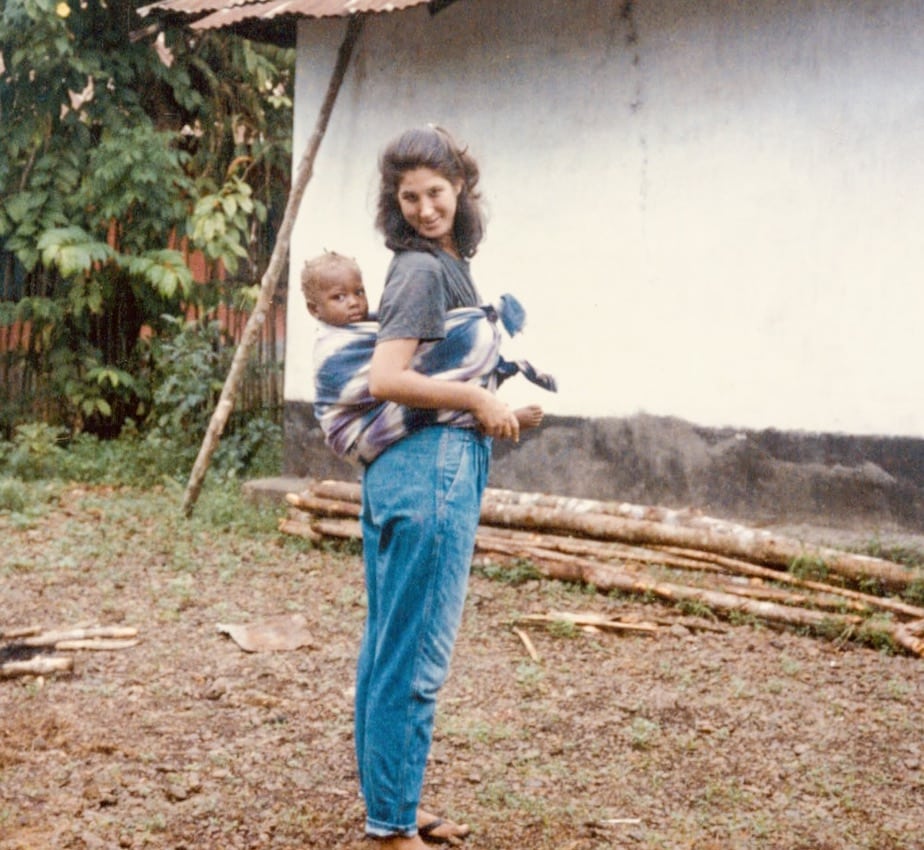The soothing pulse of the late-night rain shower on my metal roof announced the onset of the rainy season for the farmers in Tokpombu. This second rainfall of the dry season signaled that the “felling” termites would emerge from their dirt mounds and mate in the air. The annual occurrence prompted the village men to set off at dawn to resume the ancient tradition of slashing and burning rainforest into charred earth and fertile rice farms.
Meanwhile, women and children of the village occupied themselves with preparations for catching these tiny sources of nourishment, calling this time, “Protein Season.” Excited boys and girls gathered piles of bamboo sticks and water-filled gourds beside their mothers’ cooking fires. At dusk they would set their sticks alight and wave them in the air. “Tahmite! Tahmite,” they shouted. Wounded termites plummeted into the water and drowned. The women then removed the tiny wings, no larger than a fingernail, and fried the termites with salt, creating enough chewy, nutritious snacks to for last days.
The following rainy morning, a man in a yellow slicker knocked at my door and confidently entered, announcing that he had “official business.” He told me his name, Tamba, and handed me a letter about an upcoming Agricultural Field Day. The event would be presided over by the Paramount Chief, and the notice required participation of every farmer from all of the surrounding villages. I folded the letter back into the envelope and poured him a cup of coffee from my colorful Chinese flask. Tamba explained that he was overseeing the Field Day, which would include the Peace Corps, the Ministry of Agriculture, and United Nations Development Programme (UNDP). “You Peace Corps will provide shovels, rice varieties, and fertilizers for our Green Revolution swamp development projects…“Duya (Please) help spread di word.”
Before long, even the chiefdom’s children and their teachers enthusiastically joined us in the preparations. We poured our hearts’ energy into constructing rice nursery beds, demonstration rice plots, a fish pond, and raised garden beds. The schoolchildren sang traditional Kono songs and danced as we worked, which fostered a vital sense of promise and shared purpose in this district of the country, which was plagued by its “diamond curse.” International markets fetched high prices for diamonds, which occasionally would bubble up in the swamps, but paid a pittance to the farmers who found them. For months, hundreds of men, women, and children across the chiefdom dedicated themselves to gathering palm oil and sacks rice for this special occasion. They even donated precious chickens, goats, and wine.
Yet, on the day of the highly anticipated Field Day, everything went awry. Earlier, my friends and I had dismissed the rumors that several influential leaders had met secretly the night before and raided the community donations, including the highly coveted palm oil and rice intended for the feast. Some had even speculated that the leaders had used the occasion and the donations as a cover to purchase diamonds.
To our utter dismay, we arrived at the Field Day site only to discover that there was nothing for anyone to eat. There would be no celebratory feast. Stunned, disappointed, and hungry, everyone headed back to their villages, some nearly ten miles away. Heartbreak was written on every face.
Along the way home, farmers continued to express their grief, despair and shame. “E no easy foh tote load inside bucket way een bottom don brok. Dehm deceive we all!” they lamented. Our foundation is shattered. We have been deceived. The school’s headmaster wryly observed, “If two elephants fight, only the grass will suffer.”
When they saw me teary-eyed, several men said to me, “Sia Besty (my nickname), no cry. How you feel this, we feel this more than you.” I will always remember how Field Day, an occasion meant for learning, sharing and renewing hope, turned into a betrayal. On that day, we reckoned with a hard lesson on the uneasy landscape of power, justice, and dignity. I had witnessed blatant theft and corruption and how deeply it hurt everyone in the community.
I left Sierra Leone in 1987. Four years later, war erupted. The hard-working farmers I had lived with became entangled in a horrific eleven-year Blood Diamond War. For me, this civil conflict revealed a troubling truth: Injustice takes root long before open and violent conflict erupts.
Decades later, I returned to Tokpombu with my teenage daughter. The now-grown children who barely survived the violence proudly introduced me to their own children. We reminisced about the disastrous Field Day and all the effort we had expended, even the dances we had rehearsed. I was amazed to discover that they had held onto these bittersweet memories for all these years and that the sweet of trying outweighed the bitter. Our shared memories and ongoing connections reminded me that we are always interconnected and that we share the responsibility for a better future. The Field Day was on my mind when I wrote the epigraph for my book, Before Before: A Story of Discovery and Loss in Sierra Leone:
If you go, you hurt.
If you hurt, you feel.
And if you feel you are connected forever.





